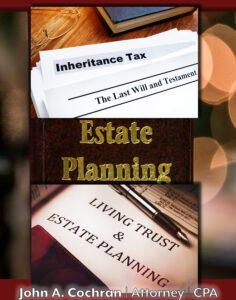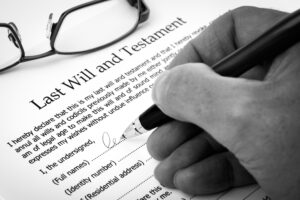Estate Planning for Your Kids discusses some planning steps you can take for your children. No one likes to think about their death. But just like taxes, death is inevitable. So, when you meet your end, do you know who will inherit your possessions? If you have kids, how will you ensure they will receive and further know how to handle their inheritances? Don’t assume the answers to those questions unless you have an estate plan. Therefore, you think of personal estate planning as a benefit for your kids, and not just a subject to avoid or be put off.

Your Lack of Planning Causes More Pain
When you fail to put your financial affairs in order, your children will deal with the consequences. If that’s what you want, quit reading right now. We can’t help you.
But if you want to ensure you’ve taken care of your kids, you need to know how to plan. Adult children in particular can face several common problems when their parents fail to plan properly. Such as the location of and title to the parent’s assets. Assets may be titled to be automatically distributed to a party or in a percentage to a party that you were unaware of; the adverse is possible as well.
Apart from that, they can also face unexpected inheritance taxes or not knowing where to find financial account information. Just placing someone’s name on an account doesn’t automatically mean they know it exists…or how to handle it.
To make matters more complicated, inheritance laws vary from state to state.
Communicate Wishes
Many parents do an amazing job teaching their children about budgeting, saving, and investing. Yet, they fail to communicate any information whatsoever about their inheritances. Consider this your final and most important financial lesson.
Parents often just assume children will know what they’ll inherit and how to handle the process to receive it. But this ambiguity can lead to some nasty consequences after your death if you don’t make your wishes clear.
Hold a good old-fashioned family meeting to share estate plans with everyone. If that’s not possible, make sure you have frank conversations with each of your heirs. Either way, provide written plans with specifics that spell out who gets what (and when, if applicable). Make sure they each know where to find copies of legal documents, too.
Many financial advisors also recommend their clients arrange a time for them to meet with their heirs. This allows your children to ask questions and meet the person helping with financial matters after their parent’s death. They’ve found that having a familiar face can ease the transition during a time of grieving.
Setting Your Kids Up
It doesn’t matter whether you are of modest means or have extensive asset holdings, put the right documents in place. This will ensure you’ve protected your loved ones and the property you’ve passed down to them.
Working with an experienced estate planning attorney can ensure you structure your assets in a way to minimize or even eliminate inheritance taxation. When you come to our office, we listen carefully to your values and your goals.
We can help with:
Advance health care declarations
Trust creation and administration

Set your finances up to protect your children’s interests. Our law office exists to protect your rights and your money. Call us at 724-216-5180 or complete our online form to learn how.



